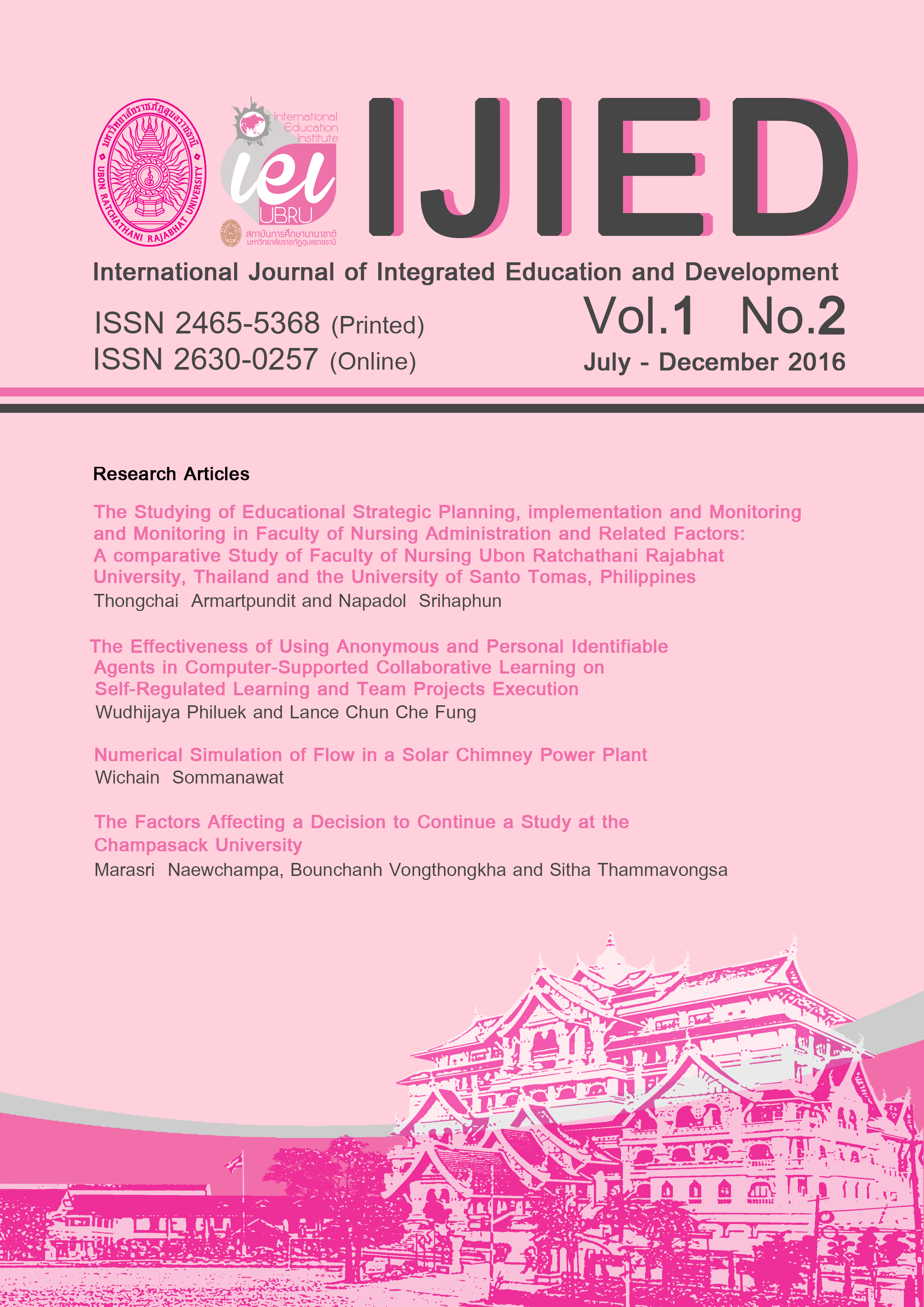The Effectiveness of Using Anonymous and Personal Identifiable Agents in Computer-Supported Collaborative Learning on Self-Regulated Learning and Team Projects Execution
Main Article Content
Abstract
The aim of this study was to investigate the effectiveness of anonymous and personal identifiable agents of pre-service teacher students among students learning in terms of self-regulated learning which combined motivation scales and learning
strategies scales, team collaboration, and team projects execution on Computer-Supported Collaborative Learning (CSCL). There were 451 students who participated in this study and 198 was successfully completed. The data were analyzed and interpreted by using various statistical techniques (t-test and ANOVA). The result showed the outcome of using anonymous and personal identifiable agents on CSCL affected self-regulated learning and team collaboration toward team project execution. There was an interaction in motivation (Extrinsic Goal Orientations: EGO), learning strategies (Critical Thinking: CT and Help Seeking: HS). However no interaction in team collaboration towards team projects execution when students used different agents for representatives on CSCL. This results to helped teachers or instructional designers in developing eLearning courseware which cooperated with project-based learning (PjBL) techniques.
Article Details
A copyright notice is a short line of text that lets the public know that your work is protected by copyright law and is not to be copied.


